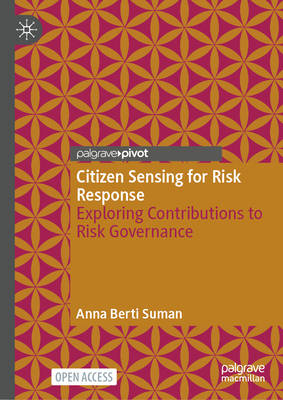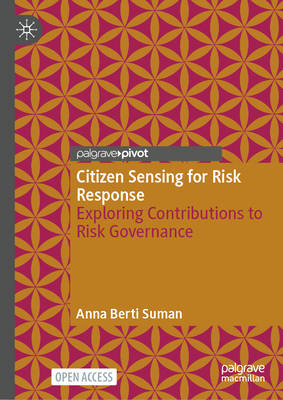
- Afhalen na 1 uur in een winkel met voorraad
- Gratis thuislevering in België vanaf € 30
- Ruim aanbod met 7 miljoen producten
- Afhalen na 1 uur in een winkel met voorraad
- Gratis thuislevering in België vanaf € 30
- Ruim aanbod met 7 miljoen producten
Zoeken
Citizen Sensing for Risk Response
Exploring Contributions to Risk Governance
Anna Berti Suman
Hardcover | Engels
€ 91,95
+ 183 punten
Omschrijving
This open access book provides novel insights into the field, exploring the potential for the 'sensing citizens' to concretely influence risk governance by filling - intentional or accidental - official informational gaps. Grassroots-driven environmental monitoring based on own senses or on sensor technology, i.e., 'citizen sensing', can be considered a constructive response to crises. When lay people distrust official information or just want to fill data gaps, they may resort to sensors and data infrastructures to visualize, monitor, and report risks caused by environmental factors to public health. Although through a possible initial conflict, citizen sensing may ultimately have the potential to contribute to institutional risk governance. Citizen sensing proves to be a practice able to address governance challenges with the way data over an (environmental) risk problem are gathered and provided to the public. This essentially unveils the issue of a perceived legitimacy gap in current (environmental) risk governance. Nonetheless, it also opens avenues for a more inclusive and transparent governmental response to pressing and complex risks, affecting first and foremost local people.
Specificaties
Betrokkenen
- Auteur(s):
- Uitgeverij:
Inhoud
- Aantal bladzijden:
- 80
- Taal:
- Engels
Eigenschappen
- Productcode (EAN):
- 9783032039385
- Verschijningsdatum:
- 9/12/2025
- Uitvoering:
- Hardcover
- Formaat:
- Genaaid
- Afmetingen:
- 148 mm x 210 mm

Alleen bij Standaard Boekhandel
+ 183 punten op je klantenkaart van Standaard Boekhandel
Beoordelingen
We publiceren alleen reviews die voldoen aan de voorwaarden voor reviews. Bekijk onze voorwaarden voor reviews.











